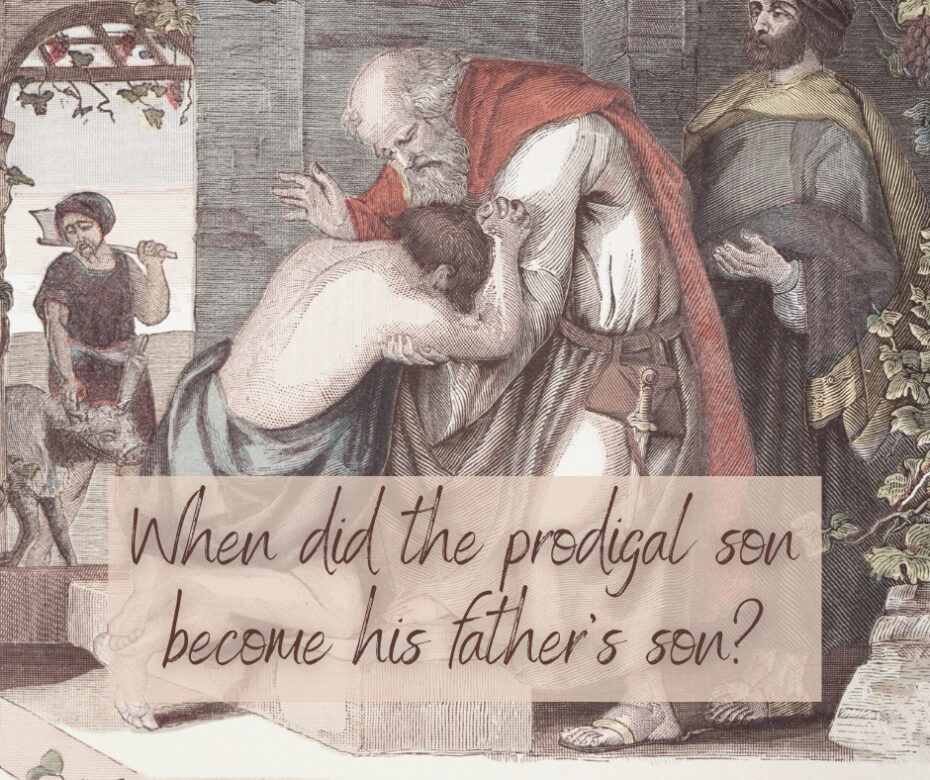Blake asks a great question:
Bob, I have a question about your book Turn and Live: The Power of Repentance. On page 103 item 3 you say that Luke 15:7 is in reference to the repentance of believers. Could you tell me where in chapter 15 you understand Jesus to be talking about believers?
I have three lines of proof.
First, in the first parable, the lost sheep that was found and brought back was originally part of the hundred sheep in the fold. It didn’t gain a new position. It was restored to its former position.
Second, in the second parable, the lost coin which was found was also brought back to its original place among the other coins.
Third, in the third parable, the lost son who was restored to his father was also brought back to his original position of being in fellowship with his father. He did not become a son by returning. He was his father’s son before he left and even while he was in the far country. When he returns, the father says, “For this my son was dead and is alive again” (Luke 15:24). That refers to fellowship, not everlasting life. Everlasting life cannot be lost. Fellowship with God, however, can be lost and restored.
I think pastors and theologians are led astray by thinking that since the three parables are in response to an objection by unbelieving Pharisees (Luke 15:1-2), therefore the parables must be an effort to explain how Pharisees can be born again. But there is nothing in the three parables about believing in Jesus. There is nothing close to John 3:16. All three parables explain that if a believer loses his way, then God will seek him and will rejoice if and when he returns.i
__________
i The lost sheep, coin, and son might refer to the tax collectors and harlots that Jesus taught and with whom He shared meals. Admittedly, many of them only came to faith in Jesus after He shared meals with and taught them. But they were part of the chosen people, the covenant people, before they met with Jesus. They did not become part of the covenant community by repenting. Hence, whether they were born again at the time they had meals with Jesus, they could illustrate the believer who is out of fellowship and who comes back into fellowship. In any case, Luke 15 is clearly about fellowship with God, not about the new birth.


